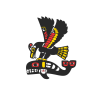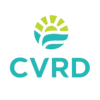Farmers had to alternate water use
Sept. 16, 2020
While the Cowichan River was spared the low water flows this year that it had experienced in recent summers, the same can’t be said for the Koksilah River.
Unlike previous years when the region experienced continuous droughts each summer, the wet weather experienced last winter and early summer in the region raised water levels in Cowichan Lake, which feeds the Cowichan River, enough that it negated the need for Catalyst Crofton to use pumps this year to raise water levels in the river, a major fish-bearing waterway.
RELATED STORY: PUMPS NOT NEEDED ON THE COWICHAN RIVER THIS YEAR
But Tom Rutherford, executive director of the Cowichan Watershed Board, said the Koksilah River doesn’t have a large body of water at its head, like Cowichan Lake, to provide water storage during wet conditions that could feed the river during dry periods.
Without a head-water lake, and less summer rain, water flows in the Koksilah River are often critically low for its coho salmon, steelhead and resident trout populations by mid-August.
In order to address this concern, Cowichan Tribes and the province signed an interim letter of agreement last February to work in partnership to explore the option of creating a water sustainability plan for the watershed, the first of its kind in the province.
RELATED STORY: COWICHAN TRIBES, PROVINCE SIGN AGREEMENT TO DEVELOP PLAN FOR KOKSILAH WATERSHED
While that plan is still in its early stages, other organizations, including the Cowichan Watershed Board, have been working together since April in an effort to coordinate water monitoring and planning for the anticipated low flows in the Koksilah River that were expected this summer.
Last year, the province issued a Fish Protection Order in August when water flows in the Koksilah River fell to 180 litres per second, which curtailed the irrigation of forage crops, like hay and corn, to some of the farmers in the Koksilah watershed, impacting their crop quality and yield.
But Rutherford said that this year, the Agriculture Research and Development Corporation, a wholly owned subsidiary of the BC Agriculture Council, initiated a plan on behalf of farmers located within the Koksilah watershed to assess and address low water flows in the river.
RELATED STORY: FARMERS WORRY ABOUT WATER AVAILABILITY IN COWICHAN VALLEY’S KOKSILAH WATERSHED
“They developed alternating irrigation schedules for the farmers so they wouldn’t all be using water from the river at the same times, and that made a difference in the water levels,” Rutherford said.
“My hat’s off to the farmers because I’m sure that it cost them to do this. Moving forward, while the solutions for the Cowichan River involve the construction of the new weir, there appears to be no ‘techno-fit’ like that for the Koksilah River.”
Rutherford said that the management of the Koksilah River and its watershed requires a different type of management, and there are high hopes for the partnership between the Cowichan Tribes and the province.
“It’s the same problem as with the Cowichan River, but requires a different solution,” he said.
“We need to up our game, and the work that is underway should give us a better idea of where we are and what needs to be done to properly manage the Koksilah River.”
[Published in the Cowichan Valley Citizen, September 16 2020- link]
 Email
Email



